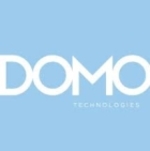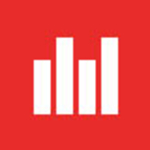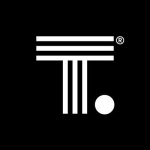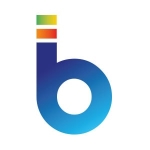
BI Expert at a non-tech company with 51-200 employees
Why I Love Tableau
I love Tableau because they took the time to design a solution that allows me, a plain old analyst, to produce reports that help management make sound decisions on business practices. Now let me define 'plain old analyst':
- Masters in Demography.
- Advanced statistical research
- Published in peer-reviewed journals
- Courses in SPSS (grad school), Excel, Access, VBA, SQL, and SSAS (in that order).
I am not a DBA or a Business Systems Analyst. I do not work in IT. And I'm not that old.
Disclaimer: This is not intended as a braggy or defensive rant; rather I hope that by understanding who the average Tableau analyst user is, you will understand our passion for this product.
I'm an analyst because I love using data to help Directors and Managers figure out solutions to their problems. As well as building standard department/program monitoring reports, I get requests for issues that crop up as often as humans interact. Human behaviour causes outcomes, intended and unintended. Here's some examples:
- "What is the accuracy of our Cardiac Wait-list Registry in this province? People could die if our data isn't perfect."
- "How close are we to the eradication of Measles with our Immunization campaigns?"
- "What is happening with babies born with Crystal Meth addiction? Are they all coming into government care?"
- "Why are Caesarean Deliveries on the rise? What is the resourcing cost?"
- "Do we need to hire more staff or should we shift services? What's up with overtime?"
- [ENTER YOUR RECENT FIRE HERE]
Tableau saves me so much time in the creation and management of regular reports, that I can deal with these urgent ad-hoc requests in record time. Or spend more time on those requests that we knew were important but were just to complex to do in Excel without a lot of time, VBA and effort. I'm not knocking Excel; she has been a valued friend over the years, but she's a bit of a mother-in-law (she's difficult, but you still love her).
Tableau was designed with my work in mind. It doesn't limit me. It exceeds my imagination. It makes me a kick-ass user. It makes me a better analyst. So much so, that I can't STFU about it.
Tableau users are often seen as fanatics - some are concerned that perhaps we've drunk too much of the Kool-Aid. Ted Cuzzillo of datadoodle has a fantastic post on his perspective of the Analyst Users (mostly Kool-Aid drunkards) and the BI Industry Analysts who attended the 2011 Tableau Conference in Las Vegas last fall. I tend to think of Ted's BI Industry Analysts as the folks on the left side of Stephen Few's BI Wall and plain old analysts like myself on the right.
Over the years, my experience with the Tech-centric folks has been varied. Usually, I'm met with general disregard or arrogance. There is an assumption by some of these folks that us plain old analysts just make pivot tables or the occasional pretty chart. They don't consider that we may be data savy (data quality, governance, security, process) or understand that we are actual business process and analysis experts.
I work hard at trying to form good relationships with these guys, which usually begins with me having to prove my mettle or give them something they need. I try to find my "guy". He's usually the guy on the left.
He's the friendly one, the most knowledgeable one with respect to the data I need, and the one who isn't threatened by other people's expertise because he's confident in his own.
Both sides of that wall have an important role and if we work together we can learn from each other and make great things happen. I've developed some great personal friendships with people on that side of the wall... it can happen.
At the conference, I didn't meet any of the "BI experts" that Ted describes, but I did meet many other analysts and without fail, they were all nuts about Tableau and the work they were now able to do. People passionately told me about their reports, new tricks they'd learned, and the cool dashboards they'd discovered through Tableau Public bloggers.
And then there was Christian Chabot's (Tableau's CEO) opening address. Imagine a Lynyrd Skynyrd concert, the crowd is shouting "Free Bird" and the original band members are all still alive. A little over the top? Ok, maybe. But we are passionate users. Because finally, after years of wrangling and blending data in Access (or SQL if we're lucky) and spending weeks building interactive dashboards with Excel and VBA - we finally have a tool built for us.
In a post at Information Management Ted paints a not too pretty future for the tech side of BI with the adoption of new user friendly technologies, wherein senior management may not foresee the potential dangers of "receding IT". He is optimistic though; while the pendulum may swing too far in the opposite direction, a rational readjustment will likely emerge.
Hopefully it's a future where the data is well managed and prepared, and Analysts on both sides of the BI wall work together building reports and sharing knowledge. It might be a little stormy at first, but it could be the perfect storm.
Disclosure: I am a real user, and this review is based on my own experience and opinions.
BI Expert at a non-tech company with 51-200 employees
Top 3 Tableau Fears
Yup. It exists. And it comes in many forms. I've done a lot of Tableau presentations to managers and analysts over the past couple of years and the same concerns keep cropping up.
- The Elusive Single Version of the Truth - (the Sasquatch of data fear)
This one is usually expressed by upper management frustrated with being confused about the numbers they are being presented with and having to ask for all the details about the data in order to trust that taking action on those numbers will be worthwhile and/or safe.
Those of us in the analysts army know that this is a red herring and has absolutely nothing to do with Tableau or any other tool. There is no single version of the truth. There are 'truths within context'. A problem exists when that context isn't transparent. For example, different departments will create different versions of the same named measure with inclusions/exclusions that are pertinent to their work. So the results may be valid in one circumstance, but not when considered for another.
What is needed is proper data governance, open communication and collaboration/sharing of information. More importantly, it is the analysts duty to note definitions and sources within the reports. Remember, that report will go out into the world (or rest of the organization) without you there to explain it.
- The Dreaded Spreadmart Invasion -
This fear is often expressed by those in BI departments as it was once believed that BI departments could help us get control over the Excel invasion. Spreadmarts have existed since humans started putting numbers down on paper. It's why we invented filing cabinets. Once we all got our hands on Excel, our filing and co-ordination system became inadequate. Most organizations have a filing problem, not a reporting problem and it certainly wouldn't make sense to stop access to the analysis tool to gain control. That would be like a library ignoring the dewy decimal system and not allowing people to borrow books because it was too difficult to keep track of them.
Managing the implementation of Tableau within the organization provides the opportunity to address this problem: set up proper Projects and Groups, build and co-ordinate access to data sources, assign senior analysts to review and vet workbooks before publishing, and most importantly SHARE best practices and learnings.
- SS Data Security -
This fear is completely legitimate and ridiculous at the same time. There are already people with access to data who have no business having access to data. Try and weed them out. I have worked in places where the server (SQL) was inaccessible for days because a 'senior' analyst has left a badly built query running and forgotten about it. Seriously. My point here is that if you are concerned that certain people shouldn't have access to data connections with Tableau because they might pull all the data and freeze everything, well, they would be doing that same thing with any tool tool you gave them. They can even do it with Excel.
One of the great things about Tableau is that you can share the data if you choose. You can set up a data connection, put limits on the amount of data it pulls, do the analysis, prepare the dashboard and send the workbook to someone without having to publish it. If they have Tableau, then they can open it up and use the data to conduct more analysis. If they have rights to the connected data, then they can refresh it. You've limited the amount of data that can be pulled (e.g. rolling 12 months), so they can't crash the system. If you have Server, there's even more options.
All three of these issues can be addressed through COLLABORATION. Instead of creating rules, create conversations.
Disclosure: I am a real user, and this review is based on my own experience and opinions.
I echo Kelly's comments as I have heard similar fears in the institutional research profession when discussing the democratization of data. I think Tableau Software triggers these issues deeply - visualization that taps innate human perceptiveness is powerful and promotes clear understanding of organizational performance and accountability (or lack thereof).
Buyer's Guide
Tableau
March 2025
Learn what your peers think about Tableau. Get advice and tips from experienced pros sharing their opinions. Updated: March 2025.
849,190 professionals have used our research since 2012.
Project Manager at a computer software company with 51-200 employees
Tableau is excellent for visualizing pre-built data or data that are already organized
Valuable Features:
• Graphical representation – great for showing trends over time or comparisons
• Data source integration – can integrate with almost every type of databases/data sources like text files (csv, txt), SQL, SSAS, Oracle, etc
• Flexible – very simple for a user to create reports with parameters and filters
• Drill down – this functionality is built in so it is very simple to export into Excel and link from report to report, dashboard to dashboard.
• Links - Using the URL you can link to any webpage or any report accessible via URL
Room for Improvement:
• Unlike Tableau, QlikView is a powerful, agile platform.
• Lack of shortcuts – no controls such as dials or gauges which are generally find with dashboard
• Poor Performance in hierarchical data– this is an usability problems when filtering as it doesn’t recognise the hierarchy. You can’t clear all filters enabling the user to start again when using complex filters
• Unable to link parameters
Other Advice:
• Graphical representation of data - refers to the aggregation of data in a relevant and easy to read
• Customizable Maps: Table 7 allows correlation with geographical indicators displayed by different colors. Each geographical area will receive a predefined color. For example, if economic growth in Spain it will receive colors depending on the level of growth
• Related Charts: It is possible that in one chart to be visible all the variations.
• In addition to the possibilities of visual correlation with indicators of geographical areas, the new version of BI offers a number of other new features:
• multiple maps
• Multiple names points / geographical areas (depending on language, types of abbreviations)
• ability to add new points according to geographical longitude and latitude points
• Automatic identification and centering it on the map for viewing relevance.
Disclosure: I am a real user, and this review is based on my own experience and opinions.
From my point of view, Tableau has three advantages: First is that the user can create visuals quickly and then switch between types easily in order to find the model that best represents the message. Second is that the user's interface is well organized and he can customize the view with a few clicks. And third is that defaults are based on best practices and the initial result contains nice color combinations and layout.
Educator at a university with 11-50 employees
Automatically shows charts for the related data that I choose
Pros and Cons
- "Tableau will automatically show charts for the related data that I choose making it very easy to use."
- "In the next release, there should be more information describing each chart because users have a difficult time telling them apart. They should also include the animations/videos, similar to Power BI."
What is our primary use case?
I use Tableau for the ability to use the sheets/histories, dashboards, and various charts (some with GPS locations). I am also able to publish reports to my own server.
What is most valuable?
Tableau will automatically show charts for the related data that I choose, making it very easy to use.
What needs improvement?
In the next release, there should be more information describing each chart because users have a difficult time telling them apart. They should also include the animations/videos, similar to Power BI.
I also think that the trial period should be extended. It is currently only twenty-one days which is a short amount of time to get acquainted with the solution.
Which other solutions did I evaluate?
We looked at Power BI and realized that would would need some experience to use this solution since it will not automatically pair a chart with the data that it is related to.
Which deployment model are you using for this solution?
On-premises
Disclosure: I am a real user, and this review is based on my own experience and opinions.
Cloud Solution Consultant at a computer software company with 201-500 employees
Beneficial reports, reliable, and superb features
Pros and Cons
- "I have found Tableau easy to use and the features are superb."
- "Tableau is difficult to scale because of the cost, which makes it difficult to scale."
What is our primary use case?
I am using Tableau and we use it as a business intelligence tool. We plan to move to the cloud soon.
Our compliance team has not approved some security policies on the cloud. We are working on it and we have moved some of our data warehouses to Redshift already.
How has it helped my organization?
The solution has helped out organization improve by providing beneficial team reports.
What is most valuable?
I have found Tableau easy to use and the features are superb.
For how long have I used the solution?
I have been using Tableau for approximately two months.
What do I think about the stability of the solution?
Tableau is stable.
What do I think about the scalability of the solution?
Tableau is difficult to scale because of the cost, which makes it difficult to scale.
We have approximately 25 users using this solution in my organization.
Which solution did I use previously and why did I switch?
I have previously used Amazon QuickSight, and Tableau is easier to use.
What's my experience with pricing, setup cost, and licensing?
One of the biggest drawbacks of Tableau is the price, it is expensive. The price should be reduced.
What other advice do I have?
I rate Tableau a nine out of ten.
Which deployment model are you using for this solution?
On-premises
Disclosure: I am a real user, and this review is based on my own experience and opinions.
Senior Data Analyst at a consultancy with 10,001+ employees
Good data handling, and community support, but it's overpriced and the interface needs improvement
Pros and Cons
- "Data handling, visualizations, and aesthetics of it are the most valuable features."
- "When compared to Power BI, it is less user-friendly."
What is most valuable?
Data handling, visualizations, and aesthetics of it are the most valuable features.
What needs improvement?
When compared to Power BI, it is less user-friendly.
The interface needs a major overhaul.
For how long have I used the solution?
I have been working with Tableau for eight to ten months.
We are working with the latest version.
What do I think about the stability of the solution?
Tableau is a stable product.
What do I think about the scalability of the solution?
It's a scalable solution.
How are customer service and support?
There is technical support available, but it is not as comprehensive as Power BI, because obviously, it's a Microsoft product, but you can find some useful information. The community is good, but outside the community, help is scarce.
How was the initial setup?
The initial setup is easy.
What's my experience with pricing, setup cost, and licensing?
It is a bit overpriced. They could decrease the price a bit.
When compared to Power BI or Qlik, Tableau is overpriced when you go with creative licenses.
What other advice do I have?
Before implementing Tableau, It would be better if they looked at Power BI instead. They offer everything that Tableau does, but in a much more user-friendly manner, with much more support, and at a lower cost.
I would rate Tableau a seven out of ten.
Which deployment model are you using for this solution?
Private Cloud
Disclosure: I am a real user, and this review is based on my own experience and opinions.
Research & Development Expert at a energy/utilities company with 11-50 employees
Stable with a quick initial setup and good for managing data sets
Pros and Cons
- "The initial setup is quick and easy and you don't need special outside assistance to set everything up."
- "The integration with other program languages, like Python, needs to be better."
What is our primary use case?
I primarily use the solution in order to utilize the graphs. It offers a good diversity of graphs and I can manage different data sets together with Excel. I can publish it for my manager, if, in the future, I'm going to use it at work.
What is most valuable?
The solution offers good capabilities in terms of responding to my requirements. My dataset is so small and I don't need any complex graphs. It makes it very simple.
The solution is very stable.
The initial setup is quick and easy and you don't need special outside assistance to set everything up.
What needs improvement?
The integration with other program languages, like Python, needs to be better. I know the capability is there, however, there needs to be better integration. There needs to be integration for machine learning and AI. That would help data analysts and data scientists quite a bit.
For how long have I used the solution?
I've only been using the solution for a few weeks at this point. I'm working on gaining some experience and familiarity with the product.
What do I think about the stability of the solution?
I've found the solution to be quite stable and reliable so far. I haven't used it long, however, I can't recall it crashing or freezing. I haven't experienced bugs or glitches. Its performance is good.
What do I think about the scalability of the solution?
There might be about 20 people in our organization that use the solution.
I'm not sure if we will continue to use the product. Currently, I've only used it for a few weeks, and I'm learning it. However, our organization seems to like to work with Oracle. I'm not sure if we will focus on that or not in the future.
How are customer service and technical support?
I've never used Oracle's technical support in the past. I can't speak to how well they help users with issues or how fast they respond.
Which solution did I use previously and why did I switch?
I've worked a bit more with Power BI.
Our organization also works with Oracle's Analytics.
How was the initial setup?
The installation was very, very easy. I didn't have any issues at all. It wasn't complex.
The deployment took less than 15 minutes. It was very fast and seamless.
What about the implementation team?
I handled the implementation myself. I only had to download it onto my own PC.
What's my experience with pricing, setup cost, and licensing?
Our company hasn't yet made a decision on the product in terms of long-term usage. I'm not sure what the licensing status is at this point.
What other advice do I have?
We're just potential customers and end-users of the product. We don't have a business relationship with Tableau. I'm very new to the product and still really just testing it out to see how I could potentially work with it in the future.
I'm working with the latest version of the solution.
Overall, in my short time using the product, I've been largely happy with the results. I'd rate the product at an eight out of ten.
Which deployment model are you using for this solution?
On-premises
Disclosure: I am a real user, and this review is based on my own experience and opinions.
Business Intelligence Manager at a computer software company with 51-200 employees
Combines and visualizes data from many entry points and provides users with a single source of consistent and reliable information
What is most valuable?
The most valuable features are:
- Ease of setup
- Ability to create visualizations
- Level of interaction.
The users required no training after visualizations have been presented to them.
How has it helped my organization?
There are some areas where finding answers required asking specific individuals and searching through many emails. Tableau has allowed us to combine and visualize data from many entry points and provide users with a single source of consistent and reliable information.
What needs improvement?
While noted that the product is specifically designed for visualization, it would be the perfect tool if it had more ETL features.
For how long have I used the solution?
My company has been researching a BI tool for the past year. We came across Tableau and have been using the public version for approximately six months.
What do I think about the stability of the solution?
There have not been any areas of instability, thus far. The identified areas were a result of a lack of knowledge.
What do I think about the scalability of the solution?
Based on the analysis currently being done, the public version is sufficiently meeting our needs.
How are customer service and technical support?
Technical support has been awesome. We met a partner based in Trinidad and they have been providing us with assistance as we need it.
Which solution did I use previously and why did I switch?
This is our first visualization solution being used. Attempts were made on another platform, but setup and use of tool were a huge challenge for the team.
How was the initial setup?
The initial setup was very straightforward. The team was able to follow the videos posted on the Tableau website and required no technical assistance from the Tableau team.
What's my experience with pricing, setup cost, and licensing?
I am quite pleased that Tableau has now revised their pricing and licensing. The initial model was quite expensive but the current model allows you to scale up as you need to and it is far more attractive. The ability to license on a per user per month basis is now very affordable.
Which other solutions did I evaluate?
The team looked at Pentaho, Microsoft Power BI, and IBM Cognos. The members of the team who were exposed to aspects of the evaluation were far more receptive to Tableau than the others.
What other advice do I have?
It is very important to do an evaluation of your users who will be interacting with the tool. Their technical abilities will determine if a cumbersome tool is suitable for them. Secondly, if you do not have the technical expertise to administer a product, then it may not be the solution for you. Some of the other tools require a high dependence on the vendor for administrative purposes.
Disclosure: I am a real user, and this review is based on my own experience and opinions.
Buyer's Guide
Download our free Tableau Report and get advice and tips from experienced pros
sharing their opinions.
Updated: March 2025
Popular Comparisons
Microsoft Power BI
Teradata
IBM Cognos
Amazon QuickSight
SAP Analytics Cloud
Domo
SAP BusinessObjects Business Intelligence Platform
Oracle OBIEE
MicroStrategy
Oracle Analytics Cloud
Salesforce Einstein Analytics
TIBCO Spotfire
ThoughtSpot
Sisense
Board
Buyer's Guide
Download our free Tableau Report and get advice and tips from experienced pros
sharing their opinions.
Quick Links
Learn More: Questions:
- QlikView or Tableau - Which is better?
- What's your experience or opinion about Spotfire vs. Tableau vs. Qlik?
- I currently use Panorama Necto as a viewer on SQL Analysis services cube--what other solutions are out there?
- Business users moving from Tableau to MS Report builder
- Tableau vs. Business Objects - Which is a better solution for visualization and analysis?
- Tableau vs. Spotfire - What do I need to know regarding pricing and usability?
- I'm looking for real info about licensing, ease of setup and other costs involved. Can you help?
- Tableau 10: Best New/Improved Features
- A journalist is writing a story about which Data Visualization software product to choose. Can you help him?
- Tableau vs. QlikView - functionality and pricing schemes
















Nice write up, Kelly. LOVE seeing the passion for Tableau!